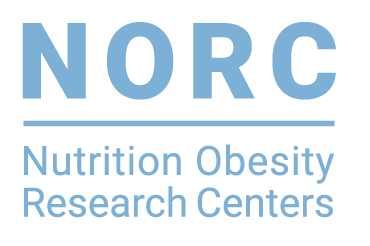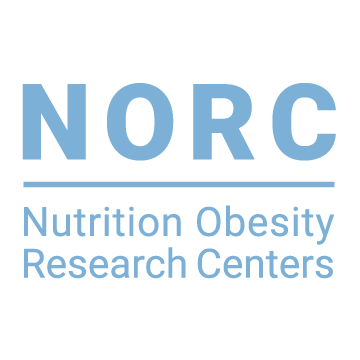Category: News
Low FODMAP Diet and IBS
A new study from University of Michigan finds a change in diet, can help people treat Irritable Bowel Syndrome. It’s based on a low FODMAP diet. FODMAP, a frequently recommended diet, which stands for Fermentable Oligo-Di-Monosaccharides and Polyols. FODMAPS are different types of sugar and fiber that ferment and cause G.I. symptoms in some people. A new study from University of Michigan finds a change in diet, can help people treat Irritable Bowel Syndrome. The diet excludes many compounds found in wheat, some fruits and vegetables, garlic, onions and sugar substitutes. Gastroenterologist, Dr. William Chey and registered dietitian Lauren Van … Read More »
Categories: Featured News, News Tags: University of MichiganMom’s Diet Can Affect Development of Next Two Generations
Nutritional deficiencies during pregnancy can have lasting effects across generations that impact development not only of children, but also of grandchildren. These heritable effects are linked to epigenetic changes that influence gene expression but not DNA sequence. At the NRI, we seek to understand how nutrition affects health and why different people respond differently to the same nutrients. The Ideraabdullah laboratory is particularly interested in identifying epigenetic changes that are caused by nutrient deficiencies and understanding how an individual’s genetic makeup influences those particular epigenetic modifications. What they did: While maternal vitamin D deficiency is linked to negative health outcomes in … Read More »
Categories: News Tags: University of North Carolina at Chapel HillEating for Wellness: Can a Change in Diet Improve Your Health?
The key to eating for wellness is not necessarily what foods to eat, but rather how and when we eat them, says Suzanne Judd, PhD associate professor in the University of Alabama at Birmingham’s Department of Biostatistics. There is no definite right or wrong. It’s often a matter of personal taste and unique body chemistry. Food influences the way a person feels, how he or she sleeps and interacts with others. Too much food can lead to extra weight, and extra weight is associated with cancer, cardiovascular disease and decreased physical function. Diet can affect how people with chronic illness feel. It’s … Read More »
Categories: Featured News, News Tags: University of Alabama at Birmingham‘Sit Less, Move More’ – Research Shows Sedentary Behavior is Associated with Cardiovascular Morbidity and Mortality in Adults
Evidence indicates that living a sedentary lifestyle may be associated with cardiovascular morbidity and overall mortality in adults, over and above the beneficial effects of time spent in physical activity. In response to this evolving evidence, some countries have implemented broad guidelines that recommend minimizing sedentary behaviors. However, there is not yet enough evidence to develop specific public health recommendations, according to a new science advisory from the American Heart Association. Cora E. Lewis, MD, professor of preventive medicine in the UAB School of Medicine, is part of the team that developed the science advisory. Lewis and other researchers found … Read More »
Categories: News Tags: University of Alabama at BirminghamInaugural Short Course in Nutrigenetics, Nutrigenomics and Precision Nutrition
The inaugural course in Nutrigenetics, Nutrigenomics and Precision Nutrition was held at the UNC Nutrition Research Institute in Kannapolis, May 23-26. This workshop-style educational course featured 16 expert-led presentations on a variety of topics including “Nutrition and Epigenetics” and “MicroRNA and Metabolic Profiling.” Attendees also participated in hands-on sessions where they learned to analyze and interpret genetic data using PLINK, Harvard’s open-source, whole-genome association analysis software toolset. This non-credit short course was attended by 96 participants from 6 countries and 29 states, including graduate students, health professionals and nutrition scientists from academia and industry. Presenters included professors from the Nutrition, … Read More »
Categories: News Tags: University of North Carolina at Chapel HillCombination of Obesity and a Common Human Infection May Increase Anxiety Levels
Anxiety and anxiety-related disorders are the most common mental health problem in the United States, with obese people having higher rates of anxiety than non-obese people. Data from a recent study reveal that this increased anxiety may be caused by an interaction between obesity and a very common human infection, which results in immunological changes in the brain. Patricia Sheridan, PhD, research assistant professor of nutrition at the UNC Gillings School of Global Public Health, has worked for years to determine how diet alters inflammatory processes in the brain. As the senior author of the study “Diet-induced obesity prolongs neuroinflammation … Read More »
Categories: News, Publications Tags: University of North Carolina at Chapel HillMetabolic Reprogramming of White Blood Cells Controls Inflammation in Fat
Researchers in the UNC Gillings School of Global Public Health have found that it is possible to control inflammation in fat tissue by manipulating the presence of a specific metabolic protein in a type of white blood cell called a macrophage. This metabolic reprogramming may provide a crucial strategy for weakening the link between obesity and illnesses such as diabetes. This research is the topic of a study by the lab of Liza Makowski, PhD, assistant professor of nutrition at the Gillings School and lead author of a new paper about the findings. Makowski also is a member of the … Read More »
Categories: News, Publications Tags: University of North Carolina at Chapel HillImplementing Global Policy to Prevent Obesity
With myriad studies suggesting a link between consumption of sugar-sweetened beverages (SSBs) and obesity and cardiac problems, a critical need exists to guide people toward better dietary choices. UNC’s Global Food Research Program (GFRP), housed at the Carolina Population Center, is a world leader in collaborating with countries and communities to design and evaluate large-scale regulatory efforts. The impact of work by program director Barry M. Popkin, PhD, and colleagues can be seen in countries from Chile to China. In 2011, Mexico, where coronary artery disease and diabetes are the two leading causes of death, had the largest per-capita … Read More »
Categories: News Tags: University of North Carolina at Chapel HillBreast Milk Hormones Found to Impact Bacterial Development in Infants’ Guts
A new University of Colorado Anschutz Medical Campus study finds that hormones in breast milk may impact the development of healthy bacteria in infants’ guts, potentially protecting them from intestinal inflammation, obesity and other diseases later in life. The study, published Monday in the American Journal of Clinical Nutrition, examines the role of human milk hormones in the development of infants’ microbiome, a bacterial ecosystem in the digestive system that contributes to multiple facets of health. “This is the first study of its kind to suggest that hormones in human milk may play an important role in shaping a healthy infant … Read More »
Categories: News Tags: University of Colorado Anschutz Medical CampusNIH Extends Funding for UNC Nutrition Obesity Research Center Through Second Decade
The UNC Nutrition Obesity Research Center (NORC) will receive a $5.4 million grant from the National Institutes of Health (NIH) to fund another five years of research. The award is the fourth time NIH has provided five-year funding for the center. “We are proud that the NIH has selected UNC as one of 12 centers of excellence in research, recognizing that our nutrition and obesity research is among the best in the country,” said Steven Zeisel, MD, PhD, Kenan Distinguished Professor of nutrition and pediatrics. Zeisel also is co-director of NORC and of UNC’s Nutrition Research Institute, located in Kannapolis, … Read More »
Categories: News Tags: University of North Carolina at Chapel Hill
